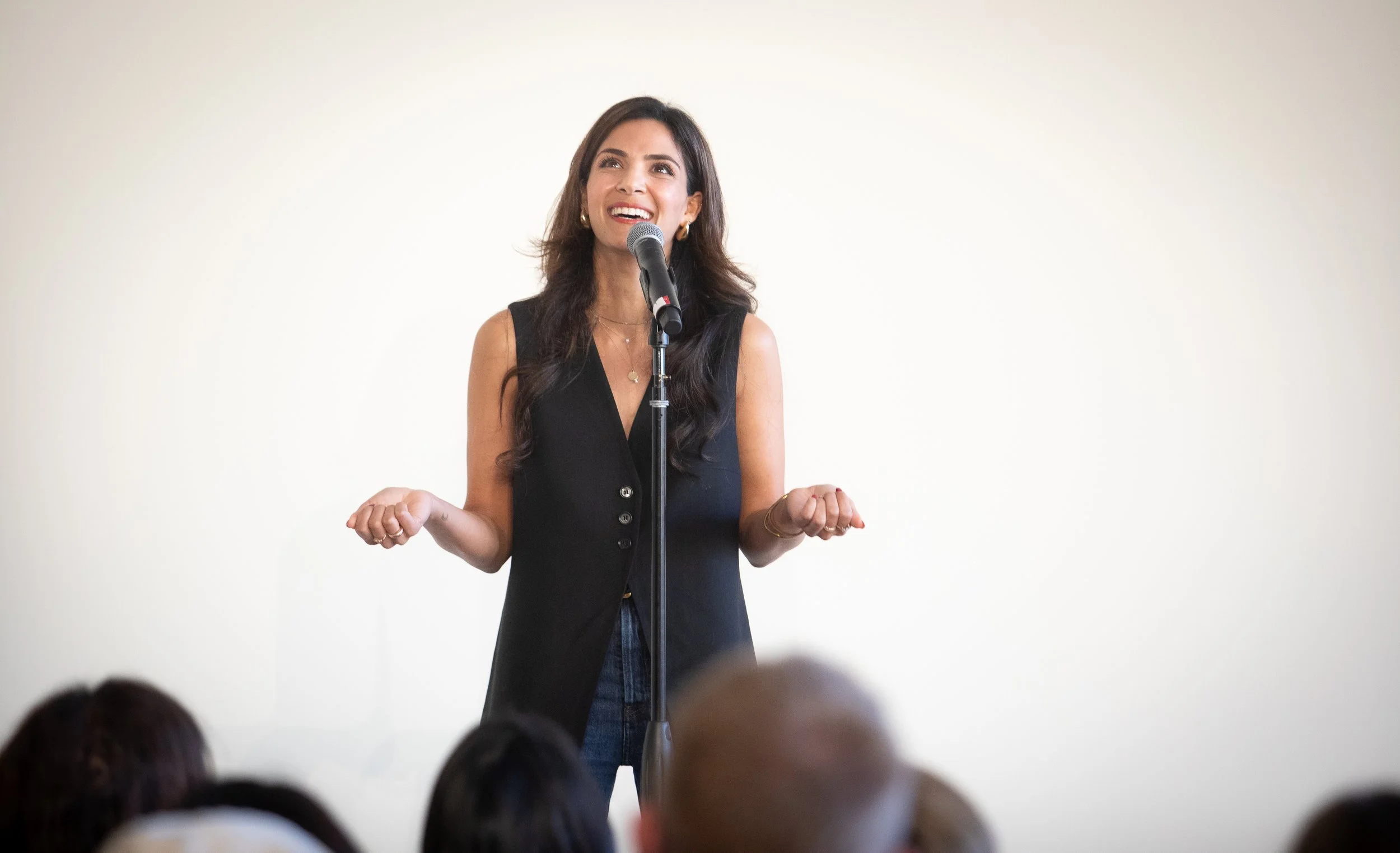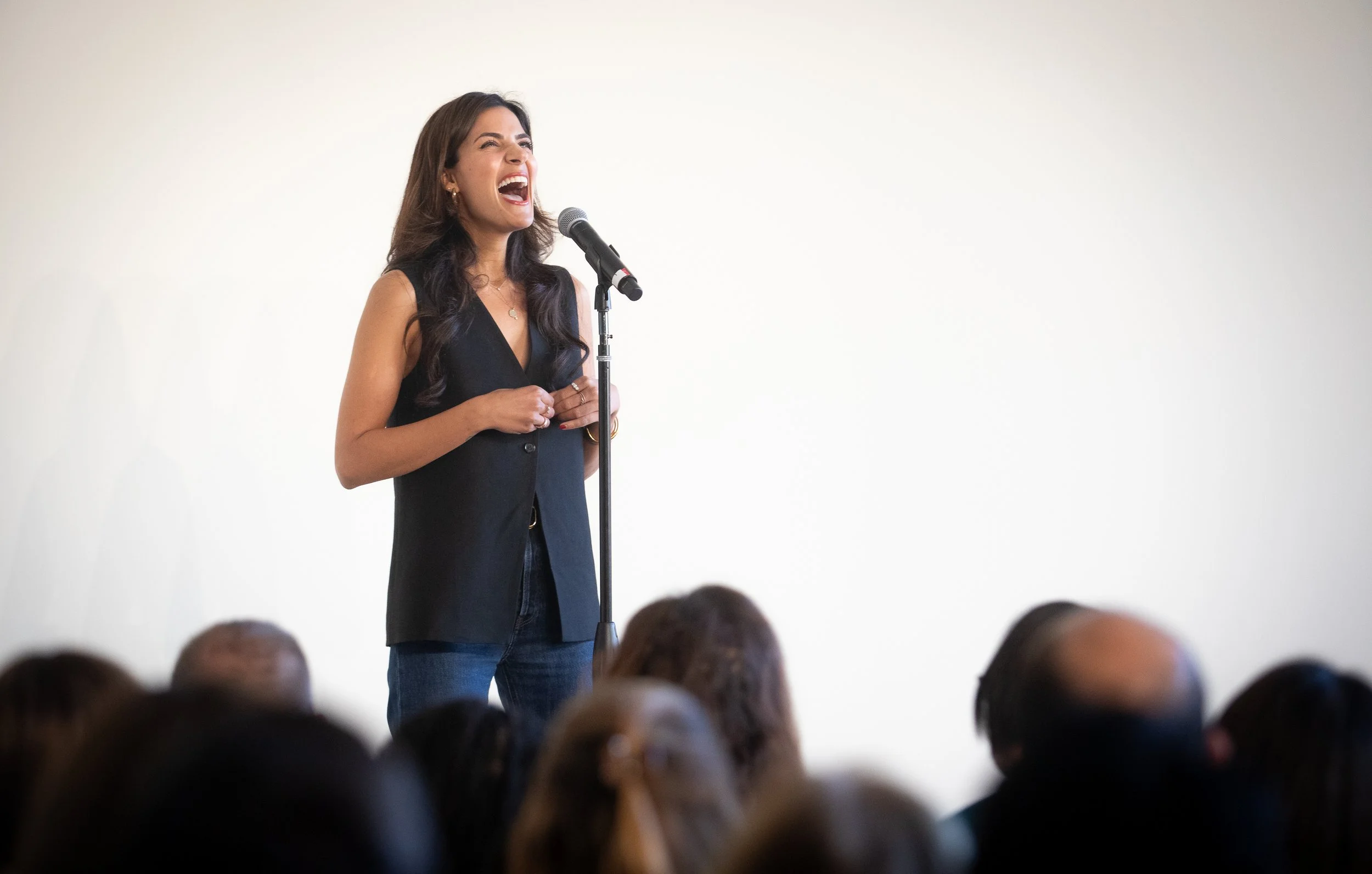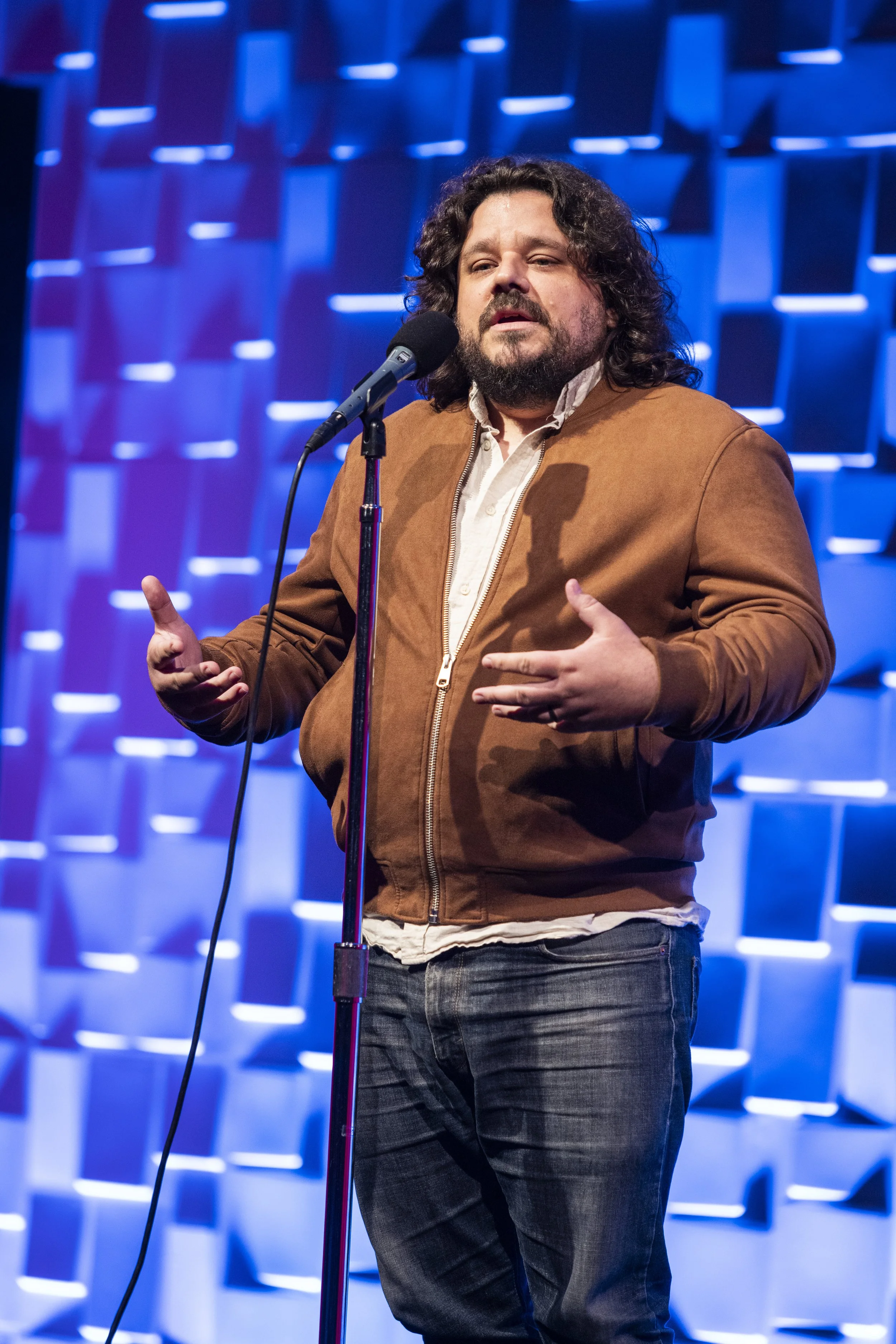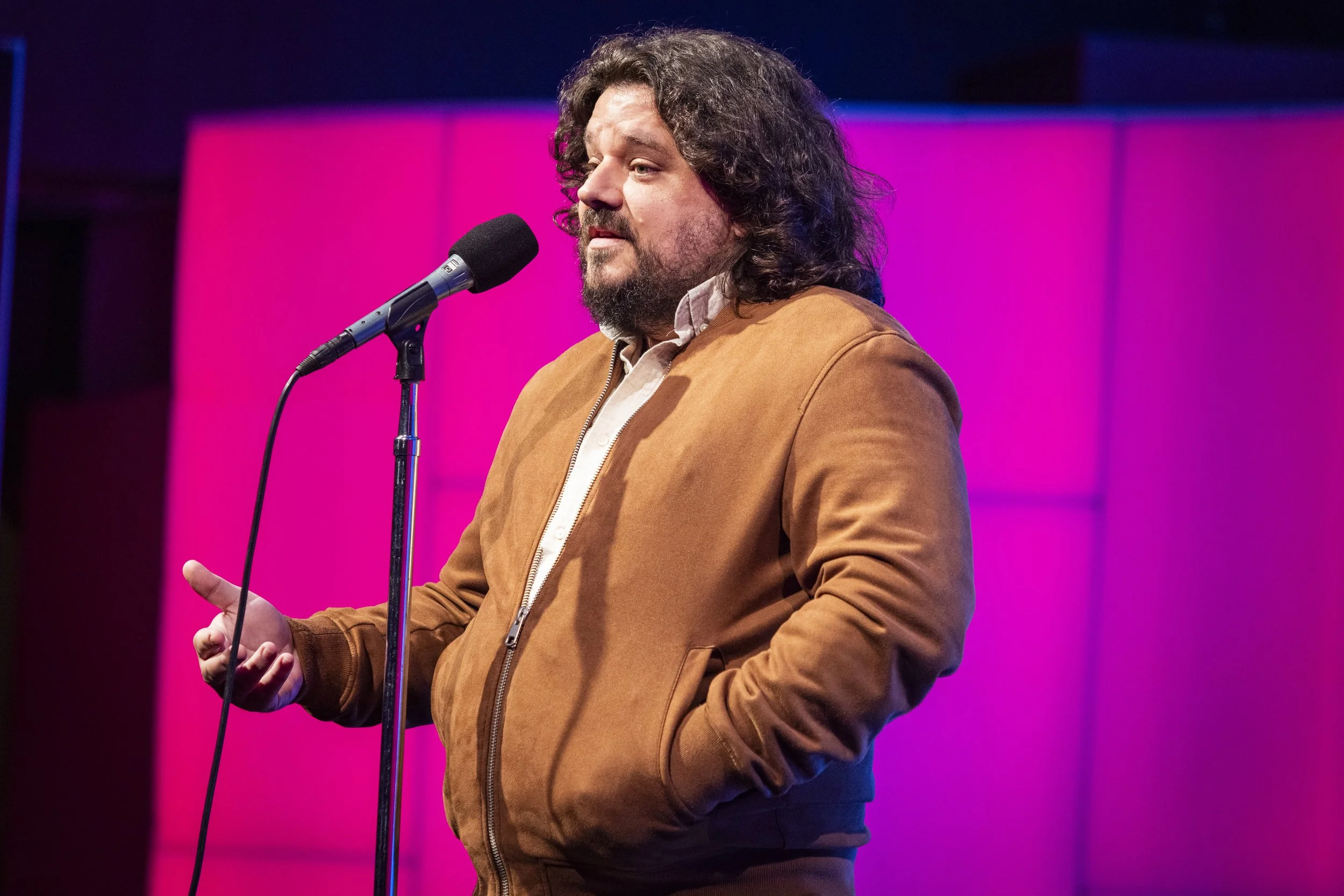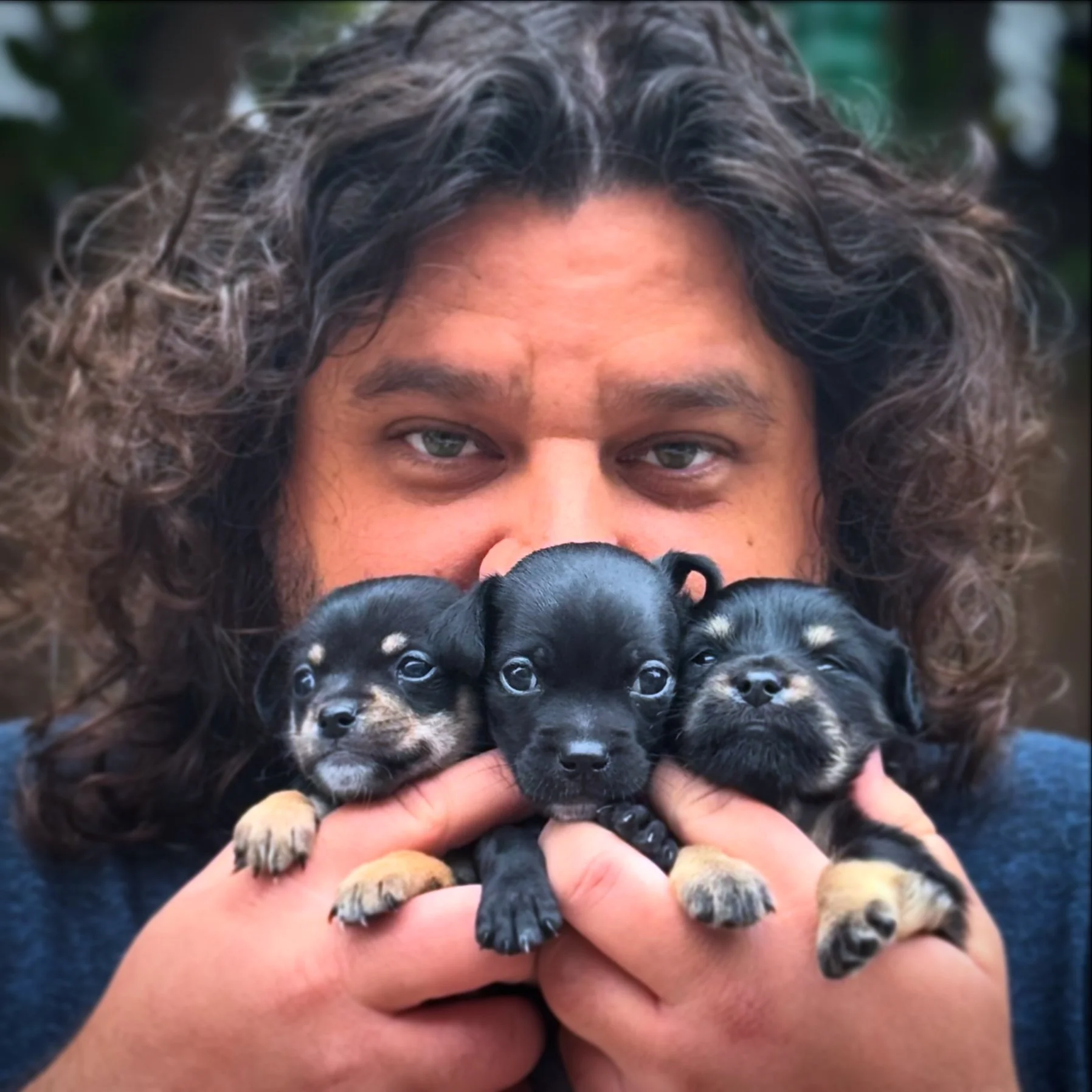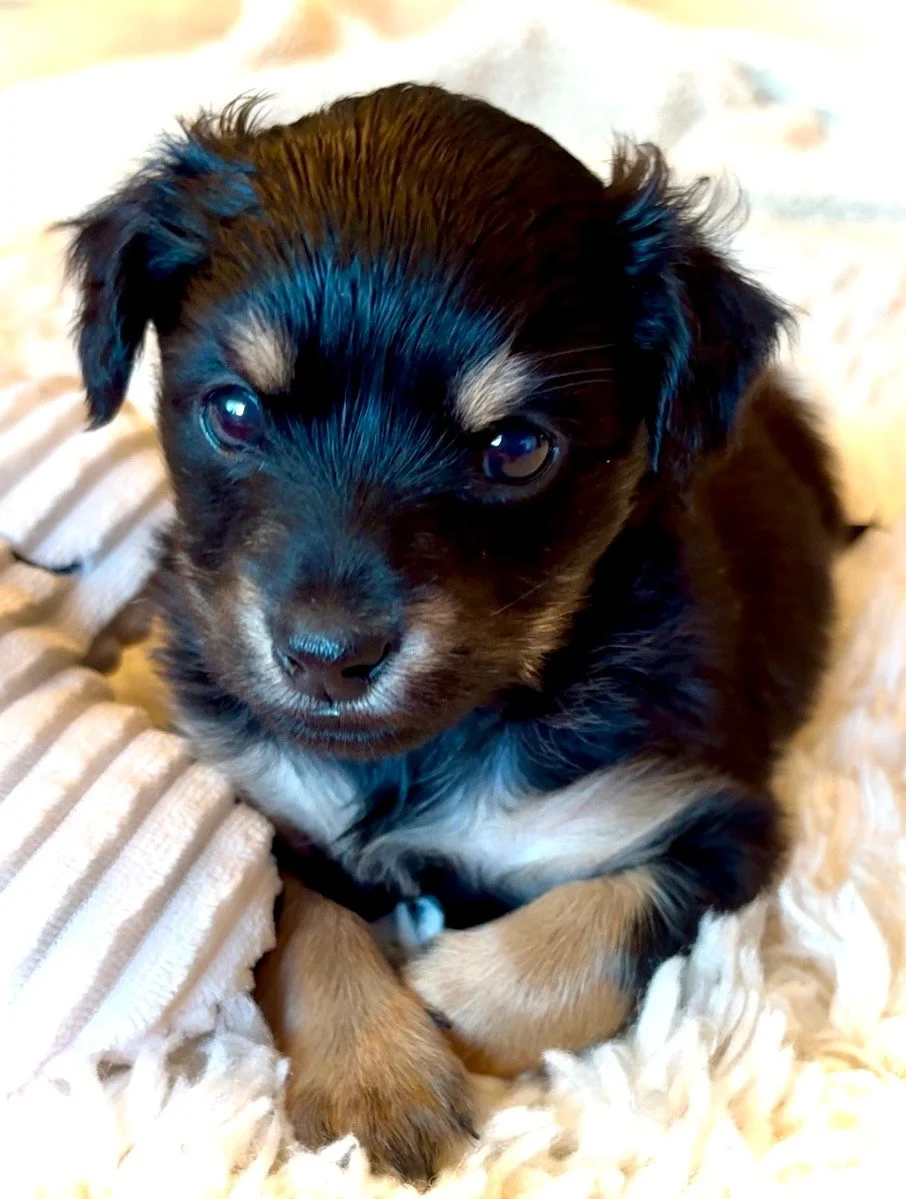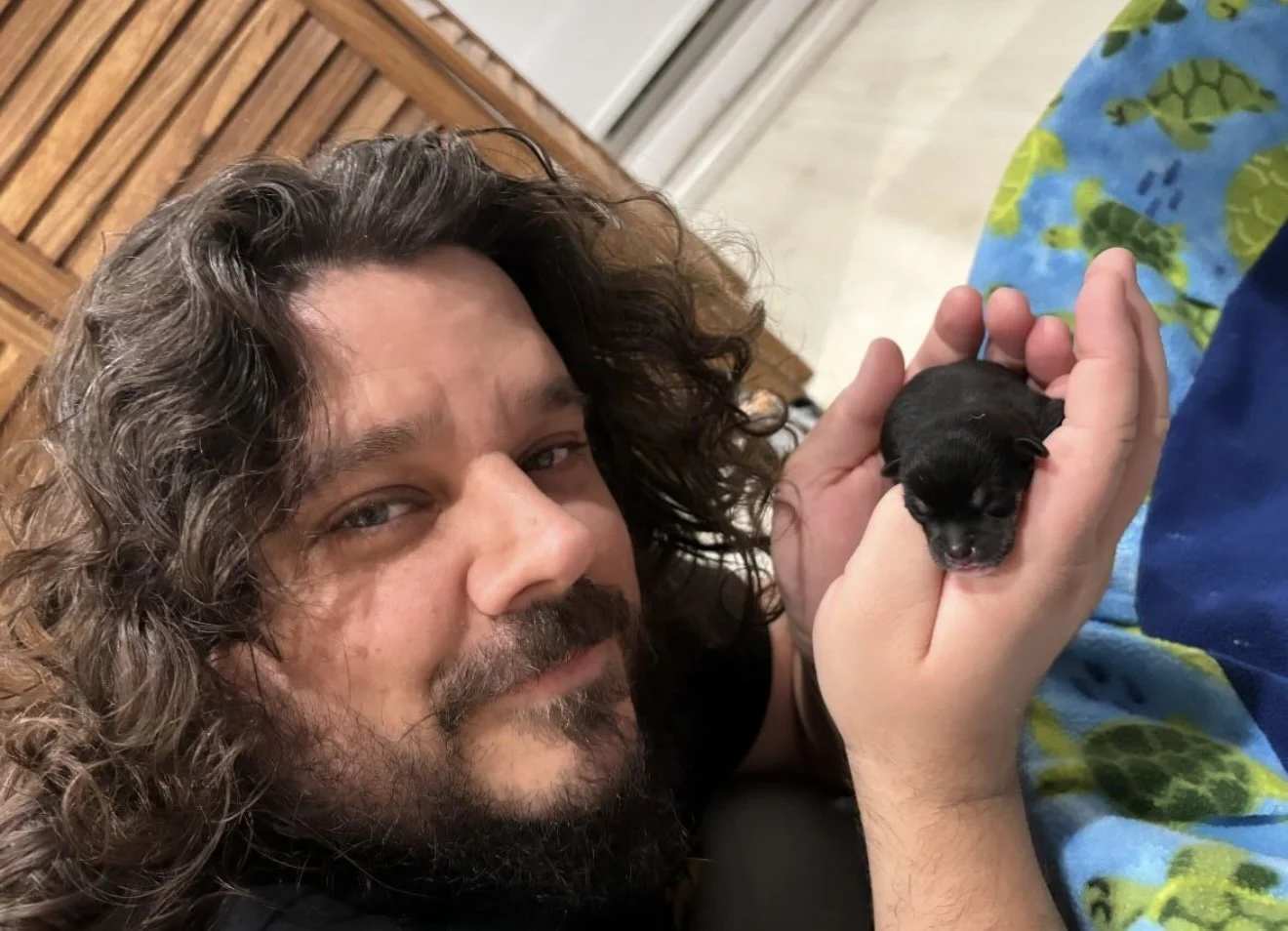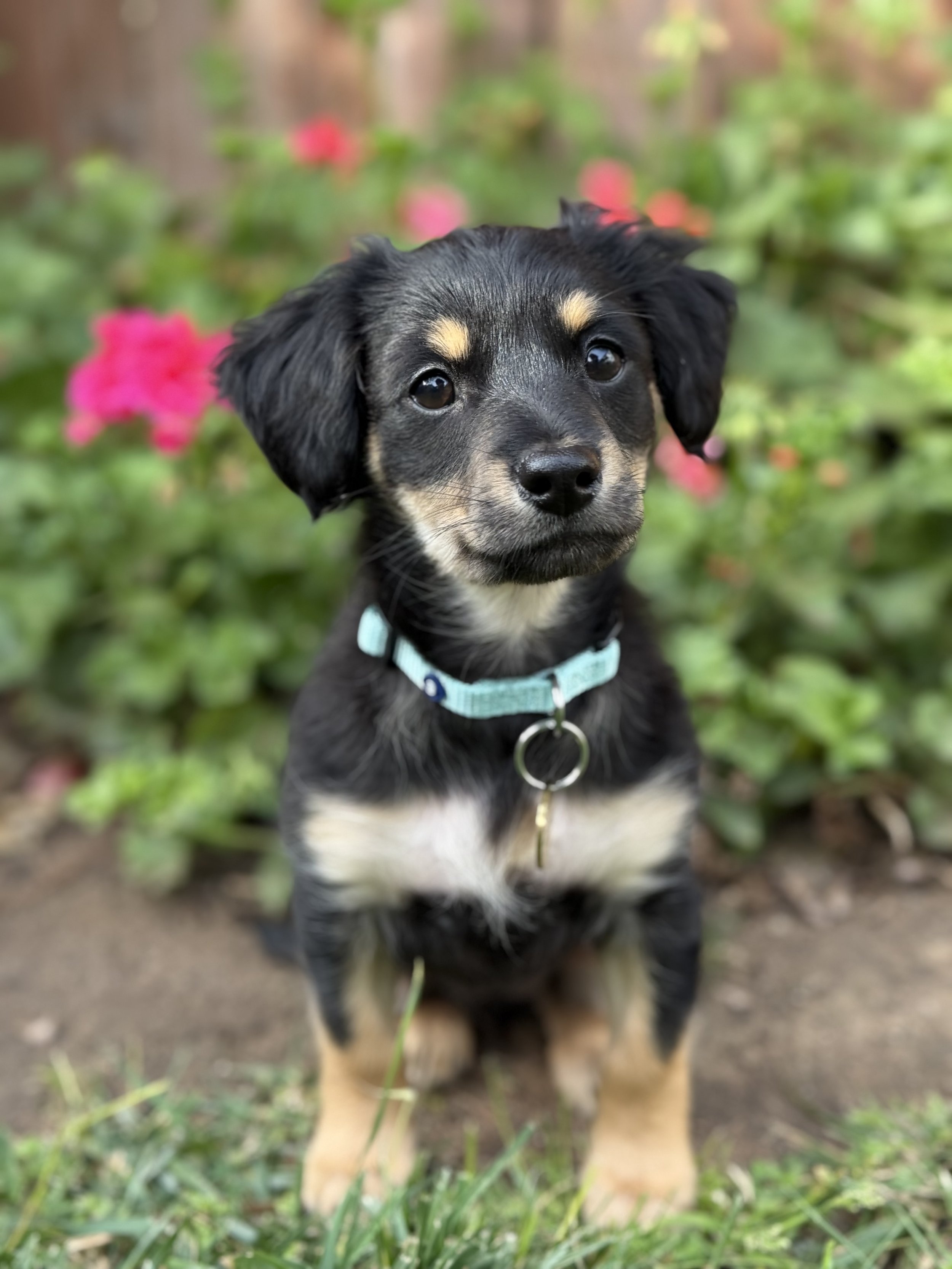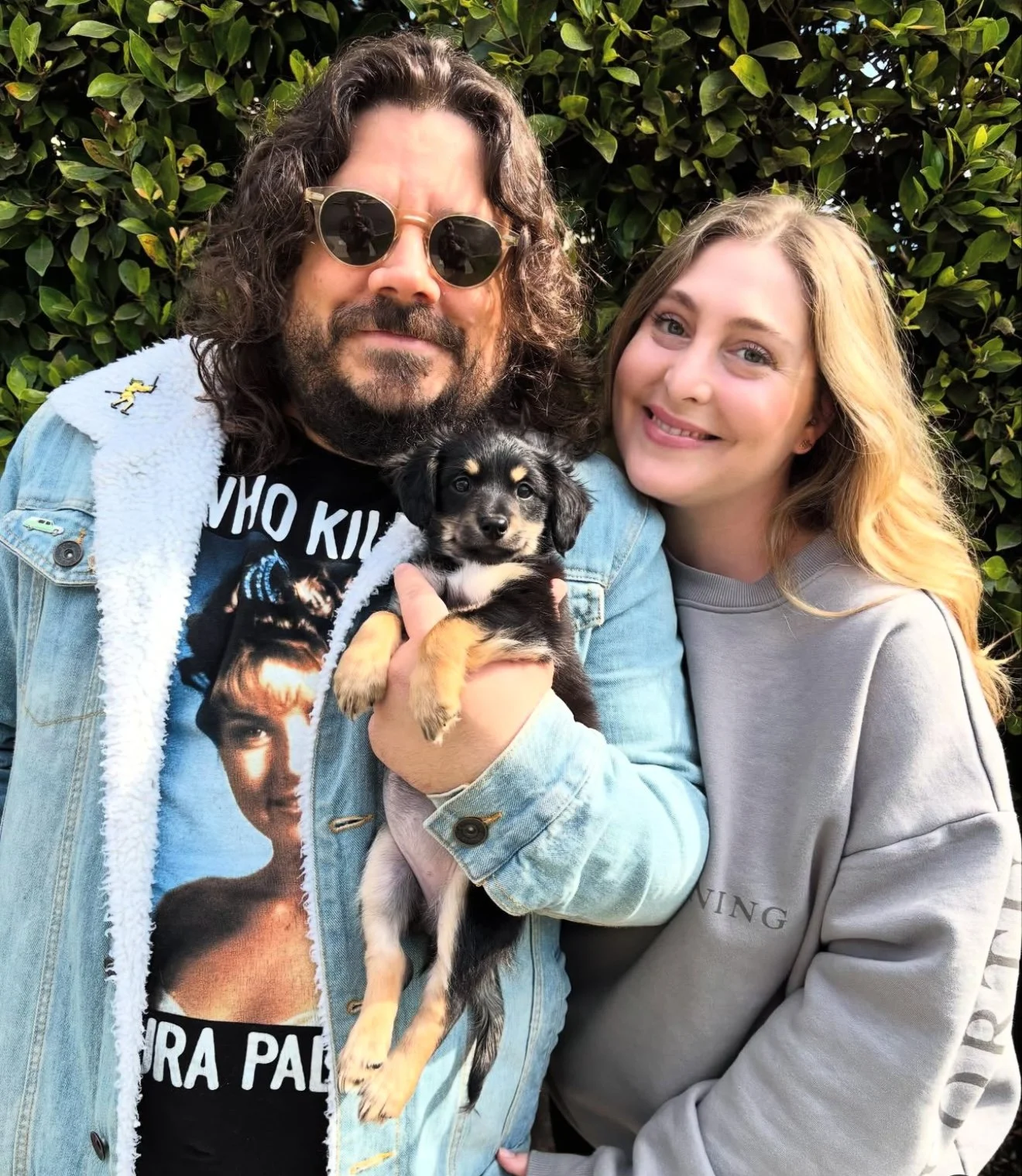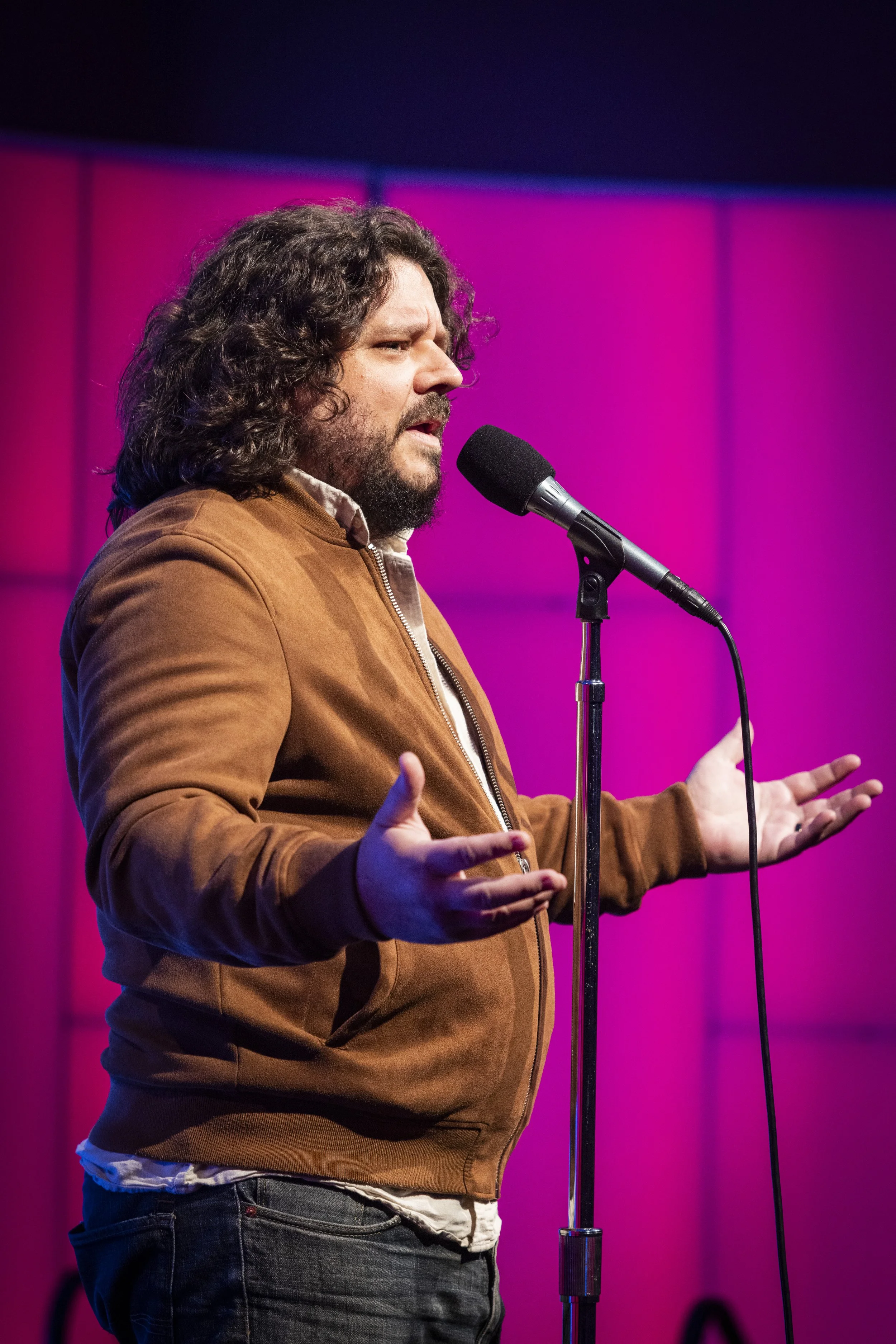In this week’s episode, both of our storytellers bite off a bit more than they can chew.
Part 1: Fresh out of college and in what seems like her dream job, drug and alcohol coach Rhana Hashemi quickly realizes she has no idea how to connect with the high school students she’s supposed to help.
Rhana Hashemi is a Bay Area–based drug educator, national expert in youth overdose prevention, and Ph.D. candidate in Social Psychology at Stanford University. Her research adapts Lifting the Bar for youth who use substances. This intervention, called More Than That, elevates youth voices to show educators that a student is "more than" their substance use. By reducing stigma and strengthening student–teacher relationships, she demonstrates how seeing and empowering students can protect against risky drug use. Rhana is also the founder and Executive Director of Know Drugs, the first youth-focused harm reduction organization in the United States, which advances evidence-based drug education for young people. Bridging social psychology with community partnerships, she works to reduce drug misuse and promote more compassionate, effective responses to youth substance use.
Part 2: When Paul Davis and his wife struggle to get pregnant, they decide to foster a pregnant dog—and things escalate quickly.
Paul Davis writes and directs horror movies. His last short won Screamfest and Ravenheart, two of the biggest horror film festivals in the U.S. and Europe. He is currently raising funds to expand it into a feature. Paul is passionate about storytelling. He has had stories air on NPR and published in Reader's Digest. He is also working on a solo-storytelling show. You can reach him on Instragram @pauldavisfilmmaker or gangoflightproductions@gmail.com
EPISODE TRANSCRIPT
PART 1
I'm 21 years old and I just graduated, and I've landed the perfect job. I'm going to be helping the Oakland Unified School District build out their new response to student drug use, focusing on support rather than punishment. I'm the perfect person for this role.
Just a few years ago, I myself was a teenager who was struggling with drug use and was met by the system with shame, criticism, and judgement. The more I was labeled a problem child, the more I became a problem child. So I wasn't just here to be the adult that I wish I had growing up. I'm here to change the model of how society deals with adolescent drug use. I'm thinking big. I'm committed to this problem and I care deeply about these students.
It's my first week on campus and it's a crowded, vibrant school. During lunchtime, I don't really know what I'm supposed to be doing because my typical job is to meet with students on my caseload. I see the principal of the school, a tall African‑American man standing in the front of the school patrolling, greeting students by their first name. He has a natural charisma to be a leader, but also is a very empathetic disciplinar.
Rhana Hashemi shares her story at Stanford University’s Cantor Arts Center in Palo Alto, CA in April 2025. Photo by Saul Bromberger for Stanford Impact Labs.
I approach him and I introduce myself as the new drug and alcohol coach, and ask him if I could do anything to be helpful during lunchtime. He tells me that the troublemakers on my caseload are off the campus right now. They usually leave the campus to go into the neighborhood and smoke weed during lunchtime, and that I should go deal with that. I didn't really know what “deal with that” meant, but I was excited to show him that I'm the person that this school needed to turn things around.
I walk off the campus and I soon quickly realize that I have a bit of an invisibility cloak on. I have a Jansport backpack on and cornrows in from Burning Man. I look kind of like the students.
So I'm taking in the sights and the sounds and the different groups and I'm not really seeing anything. I'm ready to go back to campus and tell the principal that I did my job and we're good, when all of a sudden I freeze. I just walked by three young boys rolling a blunt on a blue recycling bin, and I didn't even blink.
I think to myself, “Do I wait until they light up and then go and intervene? Do I just pretend I didn't see that and just walk away?”
I take a deep breath and I remind myself this is my job. I'm the adult now.
So I walk back up to the boys. They're still doing their thing and they look at me. One of them says, "What up?"
I'm like, “They don't realize I'm staff, so I have to tell them.”
“I actually work here.”
Two of them started to apologize profusely and pack up their bags. The other one kept rolling.
I look at them and I say, “Is this really what you want to be doing here?”
The air completely shifted. It went from an opportunity to build a meaningful connection to just judgment and shame. Of course, that's what they wanted to be doing there. What a stupid question.
So the students walked with me back to the campus. They told me it's never going to happen again. But I realized that there was no opportunity for a shared understanding of what happened, and I walked back to my office with my tail between my legs. I played out the exact script I'm here to rewrite. Not only am I mortified by my inability to connect with these students, I also am now scared about how am I going to change national drug policy if I can't even intervene in this critical moment and build a connection with the very students I came here to support.
The next few weeks, I was a bit anxious in my job. To be honest, I hid in my office for longer than I would like to admit, because I was afraid of being met with resistance and rejection again.
One of my earlier students was a young boy named Griffin. Griffin was a freshman who got caught smoking weed on campus and it wasn't his first offense. He was offered the opportunity to meet with me as a behavioral coach instead of getting suspended, so obviously he chose our sessions.
But when I went to go pick up Griffin for our first drug and alcohol coaching session, he did not want to be there. His hoodie was pulled over his head. He didn't make eye contact with me. He just looked down the whole time. He didn't want to talk about drugs. He didn't want to talk to me at all.
And I'm hearing the voice of the principal in my head that my job is to deal with these kids, but there was no way that I could actually talk about drug use with him. He's already been lectured about that.
So I switch the gears and I ask him, “Is there anything at the school or any hobbies or interests that you have?”
He holds back at first, wanting just the session to be over, not actually wanting to open up a conversation. But then he tells me that he really loves writing.
I ask him if he's been doing any writing recently, and he admits that not really. He actually hasn't been going to his English class for a while and he feels a bit embarrassed about that.
Rhana Hashemi shares her story at Stanford University’s Cantor Arts Center in Palo Alto, CA in April 2025. Photo by Saul Bromberger for Stanford Impact Labs.
So I ask him if he'd be open to maybe we go together to his teacher and we have a conversation. He agrees.
So I walk him to the class. The teacher was on a break and I use that as an opportunity to reintroduce Griffin as a student who really cares about school, who's been struggling but who's ready to start over again. The teacher is super enthusiastic because Griffin was one of his favorite students and he hasn't been to class for a while.
He tells Griffin, “Don't worry about the past. We're going to start over.”
Griffin left our session ready to begin again, but I left our session feeling like I failed at my job. By the standard metrics of what I was here to do, I didn't even talk about drug use.
The next week, I go to pick up Griffin again for our usual weekly sessions. To my surprise, he's Chatty Cathy. He has even brought with me his journals, which show me all the writings he's been doing in the past week, his raps, his poetry, and even his self‑reflections. I'm so proud of him. I congratulate him. I tell him what a great writer he is and to keep going, but I still feel like a failure.
The following week, I was 30 minutes late to pick up Griffin and he texts me, "Where are you?" I still think to myself, "This kid hates me."
So when I pick up Griffin, to my surprise, he told me that writing has helped him realize that smoking weed was impacting his relationship with his parents and it was causing more stress at home and he wanted support in cutting back.
I'm thrilled that Griffin wanted to change his relationship with weed, but I'm not taking any credit for this. After all, we haven't even talked about drugs. How could I and our relationship be making any impact on his decision? He was just a really bright kid.
Griffin and I formed a really deep connection. And over the course of the year, he brought to our sessions other students that he thought would benefit also from these conversations. One of them was a young boy named Stefan.
Stefan had not gotten caught at school for weed, which I am surprised about because he was a young Caucasian boy with dreadlocks, a Grateful Dead tie‑dye shirt and a drug rug, who didn't really go to class. Stefan wanted me to know that he was a drug user. My first thought was, “I need to help him change because using drugs when you're this young is really bad for your brain.” But instead, I asked him, "What would you like from our sessions? What kind of support do you want?"
Stefan tells me that he actually wants to be me. I'm like, "What does that mean?"
And he goes, "Well, I really like how you're educating kids about drugs and that you're not judging them and changing them, and I think that there's a lot of my friends who are not getting caught at school who are flying under the radar but who could really benefit from support.”
I'm like, “Oh, okay. Yeah, sure. We could do that. What do you want to do?”
And he makes the suggestion that we create a drop‑in support group so it's accessible, so kids didn't have to get in trouble to get support first.
We secure the space, he drafts the agenda, and we get this room on the third floor of the high school. It was the attic that even the counselors didn't want to use. And within a month, we have about 15 freshmen to seniors packed into this room talking about drugs. In the front of the classroom was Stefan and Griffin leading the conversations. They had gone from just drug users to probably the best public health asset the school had.
I'm watching them lead these conversations, everything from harm reduction to stigma and to mindfulness, and I'm also seeing these students who once viewed Stefan and Griffin as maybe the school mess‑ups to actually being leaders of this space.
Some days, though, the conversations got a little bit out of hand. Instead of talking about the negatives of the drugs, they were talking about all the drugs they were going to do that weekend, and I was freaking out.
One day, I snap and I just yell at them, “What are we even doing here? Is this space even helping you guys? I feel like I'm just promoting you guys to keep using drugs.” And the room gets completely quiet.
One by one, students look up to me and say, “But Miss Rhana, I stopped taking Xanax since I joined this group.” “Miss Rhana, I realized that smoking weed was impacting every aspect of my life, including skateboarding, so I took a break and then I realized I was happier sober.” “Miss Rhana, I stopped vaping nicotine.”
I'm stunned. I had no agenda of ever changing them, but by creating a space that was welcoming and accepting to them exactly as they were, they were able to reflect on their relationships with the drugs and make the changes they wanted on their own with each other's support. I had no idea this was happening.
At the end of the school year, a young boy comes to our door and asked to join our sessions. I'm like, “Of course.”
And he goes, “Do you remember me?”
I'm like, “Nope.”
And he says, “I was the boy that you caught that first week at school on the blue recycling bins rolling a blunt.” And here he was coming back, asking for support because he heard I was this teacher on campus that would actually support him.
Rhana Hashemi shares her story at Stanford University’s Cantor Arts Center in Palo Alto, CA in April 2025. Photo by Saul Bromberger for Stanford Impact Labs.
It was a full circle moment for me, a testimony that I had done the inner work to actually be the kind of person that these two students wanted and to help them make the changes in their lives that they thought was most important.
But I was pouring my heart and soul into this work. Meanwhile, 60% of high school students in California say they don't have a meaningful relationship with an adult at school, and I had no idea how to change these statistics. But meanwhile across the pond, a professor of psychology here, Dr. Greg Walton had partnered with legendary Oakland educator Miss Hattie Tate. Together, they had created this platform to elevate youth voices. Youth who were leaving the juvenile justice hall and going back to school had a really high chance of getting sent back into detention. And with a simple letter delivery, they cut that chance by 40%.
This intervention was actually not on the kids, it was on the adults. By changing the perceptions of the teachers from viewing these kids as troublemakers, or to make them stop being viewed as troublemakers, the kids stopped getting in trouble. It aligned with exactly the journey that I had to go through to build these relationships, these transformative relationships.
It also sparked a critical insight. 70% of suspensions and expulsions in California are drug related. What if we applied this intervention at the point of contact rather than when they're coming back from the hall for the first place?
So I emailed Dr. Walton, and a year later, I began my PhD. Our project, the adaptation for substance use, is called more than that. Because when we ask kids, “How do you want to be seen,” they tell us they don't want to be seen as a drug addicted or drug‑using high school dropout. They are actually a good kid. They really care about their family. They want to make a difference in the world.
And when we ask them, “Where do you want help? What support are you looking for?” They say they want to graduate, that they have a hard time focusing in class, that they have a lot of energy and they don't know what to do with it.
And they tell us a teacher that they think that could be a source of support, and we deliver this letter to those teachers. When we do, these adults burst into tears. They thank us and they tell us that this is what they needed to see, that they had no idea that their relationship was having any impact. And that, in black and white, this letter is telling them what the student wants support on.
I know why relationships are hard and I know why adults burn out and why we resort to shame and punishment. But relationship building is also sacred work, and it's transformational work. What Lifting the Bar and more than that does is it removes the obstacles that get in the way of adults unconditionally believing in these young people. Because when we have those types of relationships, it could change the trajectory of a child's life, especially one who's struggling. It's so simple, but that's why we call this work ordinary magic.
Thank you.
PART 2
"Do you see that little flutter," she asks, as my wife and I stare at the monitor. "That's your baby's heartbeat." All at once, I'm relieved that the lights in the doctor's office are turned off so that neither of them can see the tears that fill my eyes. This moment is the high point of my year 2024.
After several years of trying to get pregnant, my wife and I finally decided about halfway through 2023 that we were going to begin fertility treatment, hoping to bring a baby girl into our lives by the end of 2024. So, Gina started to undergo IUI fertility treatments, or intrauterine insemination where she would take medicine that would stimulate more egg growth in the ovaries and the doctors would inject the semen directly into the uterus where it would have a better chance of directly fertilizing one of those eggs. This is basically the medical treatment that you would do before finally resorting to IVF, which we were hoping it wouldn't get to for us.
Paul Davis shares his story at Crawford Family Forum in Los Angeles, CA at a show sponsored by LAist in July 2025. Photo by Unique Nicole.
So, we were completely overjoyed when the second treatment actually took. And for the first time in 13 years together, Gina was pregnant.
But all of that joy came crashing down around us toward the end of the first trimester when a follow‑up ultrasound revealed that the baby's heart was no longer beating. We were devastated.
But once Gina had recovered, at least physically, from the miscarriage, she just wanted to continue moving forward with the fertility treatments. So we did our best just to pick our heads up and keep on pushing forward. But from that point, we were only experiencing failure after failure until, finally, our doctor said, “Hey, this next IUI you do is going to have to be your last, because this path just isn't working for you.”
So we're heading into November with a miscarriage and several failed fertility treatments behind us and we're preparing for our final fertility treatment of the year, our final IUI ever. At this point, Gina says, "I want to foster a pregnant dog."
Now, I already know that I don't have the disposition to foster. I fall in love way too easily. I'm too emotional, so I say, "I don't know, babe. That sounds like a lot of work. It's a sacrifice that I want to make for a baby, but I don't want to be up at all hours, like, bottle feeding puppies."
And she says, "No, no, it's not like that. The mother takes care of everything, you just provide a safe, warm place for it to happen.”
And I say, “But why now? We have so much on our plates in this moment.”
And she says, “If we don't get pregnant this time around, I need something positive to hold on to after the year that we've had.”
Sometimes, being a supportive partner means putting your wife's happiness before you getting your own way. So, we Foster Nova, who is a pregnant Chiweenie, which is basically a long Chihuahua, and Gina undergoes her final fertility treatment.
For a couple weeks, there's this exciting energy in our house where there's like definitely one pregnant mama under this roof, and maybe there's two. Then Gina goes to the hospital for a blood test where it is revealed that she has, once again, not gotten pregnant.
Now, we're looking down the barrel of the end of a year that's been filled with nothing but failure and loss, but it turns out that Nova's pregnancy is actually the perfect thing for us to focus on because it allows us to mentally separate from our own pregnancy journey and allows us to reset and prepare for whatever comes next, but it also gives us the ability to kind of just focus our attention on something else.
The only problem is, now, Nova's pregnancy is holding too much importance in our lives. Like, we need this pregnancy to go well for our own mental well‑being.
The day before Thanksgiving, I step into the hallway and there's a dark splotch on the ground. So we call our friend Becca, who's a veterinarian. We describe the discharge. We say that it's thick and black, it's almost like tar.
She says, "Okay. Nova has definitely lost at least one of the puppies. It is most likely lodged in the birth canal and the others can't get out behind it, so you need to rush her to a hospital because all of their lives are in danger.”
Ultrasounds and heartbeats and news that we don't want comes flooding back into our lives as the doctor tells us that there are four puppies inside of Nova, but they can only detect two heartbeats. They're very faint, so they have to operate right away.
Paul Davis shares his story at Crawford Family Forum in Los Angeles, CA at a show sponsored by LAist in July 2025. Photo by Unique Nicole.
Now, Gina and I know that we've already lost one of the puppies. At this point, we're thinking that the best we can hope for is that two survive the procedure. So then we just sit and we wait for hours until, finally, they bring out Nova, who has a big Frankenstein scar across her belly and a big plastic cone around her head so she doesn't mess with it. She's totally doped up on drugs but she's fine. She made it through the procedure.
Then the doctor comes out a little while later and he's holding something wrapped up in a blanket. He walks straight over to me and he sets it in my lap. I look down at the three puppies that made it through the procedure.
He tells us that it's three girls, but they're not out of the woods yet. It's going to take a lot of hard work and attention to make sure that they make it through the next several days. And at any point, we still might lose any one of them.
I look down at this writhing mass of alien embryo‑looking things. They don't even look like dogs. They're so small. They can fit in the palm of your hand. They're blind and they're deaf, and they're furious and screaming. All of their screams sound like little squeaky toys.
I look down at these bizarre creatures and little cartoon hearts pop into my eyeballs, and George Michael's song “Father Figure” cues up in my head. I think back on my 2024 and how I have nothing to show for it. No goals were accomplished, no personal milestones. And in that moment, all of my priorities for the rest of the year shift. My writing, my filmmaking, our own pregnancy journey, all of that is pushed off to the side and I only have one resolution for the rest of this year and it's that all three of these fucking dogs are going to make it to 2025.
Then the doctor says, “One more thing. The mother is not producing any milk, so you're going to have to bottle feed them.”
I shoot an annoyed glance over to Gina, who refuses to meet my eyes. She's pretending like she's listening intently to what the doctor has to say. Then our lives instantly become dominated by bottle feeding puppies, which at first we have to do about every hour‑and‑a‑half.
The next day is Thanksgiving. Our Thanksgiving plans are canceled. We're bottle feeding puppies. Christmas, bottle feeding puppies. By New Year's, we're still bottle feeding puppies. And not only is Nova not producing any milk, she doesn't recognize the puppies as her own. So we'll hold the puppies in front of her. Hopefully, she'll make some kind of connection and try to clean them or something like that, but she's like, “Get them out of my face.”
At first it's sad, you know. Oh, she's not having this mother‑daughter connection with her babies. But then it just quickly gets annoying, because as our alarms are going off at 2:00, 3:00, 4:00 in the morning, she's at the foot of the bed looking at us, like, “Excuse me! Some of us are trying to get some sleep around here.”
So she's just at our house on vacation. She wants nothing to do with the babies. Nova was the physical embodiment of that phrase, “Fuck them kids.” So, Gina and I are just doing everything on our own.
And here's what they don't tell you about bottle feeding puppies, is puppies don't know how to go to the bathroom on their own. That happens when the mother cleans them and her tongue cleans their private parts and that stimulates the pee and poo glands, to use the technical term. This is a science show, right? That's what makes them go to the bathroom.
So we're not just bottle feeding puppies every hour‑and‑a‑half, every two hours, we're also simulating a mother's tongue by taking wet, warm paper towels and rubbing it on their private parts until they piss in our hands and shit on us. The worst part is every time I do it, I hold them in one hand, clean it with the other, they look me right in the face and they just scream the entire time, as if I'm violating them or like they're calling for help from their sisters, like, "He's doing it again!"
I get it. I would not want a giant to pick me up after every meal and rub my butthole, but I'm trying to help you. Because if you don't do this, they literally fill up like little water balloons and you have to lay them on their back and rub their tummies for like 45 minutes until they go.
But as disgusting as it can be and as frustrating as we get and as exhausted as we are, we're never resentful of the puppies. Three girls, we name them Donna, Shelly and Audrey after the three main girls from Twin Peaks. Strangely, the day they turned seven weeks old is the day that David Lynch passed away. So we made sure to watch Twin Peaks with all three of them so they could understand their namesake.
Of course, I'm falling in love with all three of these puppies, but I'm really forming a connection with Donna. Audrey and Shelly both have short hair. Donna has this long, wild hair, especially up around her ears. She's also our best eater. She eats twice as much as her sisters. So she eats a ton, she's really hairy. I don't know what it is we have in common, but there's something drawing us together.
And Gina sees this connection forming. Every day she says, "Paul, we can't keep a puppy.”
Paul Davis shares his story at Crawford Family Forum in Los Angeles, CA at a show sponsored by LAist in July 2025. Photo by Unique Nicole.
And I say, “Yes, I know that, Gina. You keep reminding me. But I can still clutch her to my chest every night and weep into her long pretty hair, can't I? That is my right as a foster parent.”
But eventually, the day does come where we have to adopt the puppies out to their forever families. And the week that we officially adopt the puppies out is the same week that Gina and I step into a brand new fertility clinic for the first time and begin IVF.
Since we had such a hands‑on experience with having to raise those puppies, the rescue is very grateful for us and they let us vet the families that are interested in adopting the puppies. We have a hand in choosing the family so we know that the puppies have gone to the best families imaginable, that are going to love them the most. But it still makes me sad that I can't see all three of them together every night.
Like, tonight, I can't watch Shelly play after she eats dinner until she just passes out from exhaustion. And I can't hold Audrey in the crook of my arm and rub her belly until she falls asleep, like we used to do every night. But I can wrap this story up in just a few moments and then drive home, and then swing the door open wide. And just like she's done every night for the past seven months, I can watch Donna go absolutely ballistic when daddy comes back home. Because I finally realized that sometimes being a supportive partner means putting your husband's happiness before you getting your own way.
So we've had Donna for every single day of her life. We're the only family that she's known and it's going to stay that way. Donna might not have been the little girl that we were hoping would be put into our lives by the end of 2024 but she's still the little girl we got and I will be her father figure. I will be the one who loves her until the end of time.
